All across America there are dedicated people and organizations who marshal their talents and resources to help protect and restore the wildlife, environment and natural resources that mean so much to us all. Each year, National Wildlife Federation recognizes these conservation heroes whose contributions inspire us all.
Affiliate of the Year Award
Recognizing a National Wildlife Federation affiliate organization for conservation accomplishments and contributions to collaborative efforts across the Federation.
2021: Michigan United Conservation Clubs

Founded in 1937, Michigan United Conservation Clubs (MUCC) is the largest statewide conservation organization in the nation. With its steadfast dedication to conserving natural resources, MUCC’s membership of more than 40,000 individuals and 200 affiliate clubs includes conservationists, hunters, anglers and trappers. Through nonpartisan advocacy work, teaching and mentoring the next generation of conservation stewards, educating Michiganders about current conservation issues and engaging residents in hands-on habitat stewardship at a state and national level, MUCC unites citizens to conserve, protect and enhance Michigan’s natural resources and outdoor heritage.
MUCC has a history of impactful legislative wins. In 2020, MUCC’s support was instrumental to successfully passing a ballot amendment to the state constitution, providing for the continued capture of oil and gas royalties and earmarking them for conservation and recreation projects in perpetuity. The proposal passed by a wide margin of over 84 percent statewide. Additionally, MUCC has been leading efforts to update Michigan’s decades-old commercial fishing statute while simultaneously preventing game fish from being commercially exploited. This legislation passed with bipartisan support in the Michigan House of Representatives and awaits action in the Senate.
Since 1947, MUCC’s quarterly publication, Michigan Out-of-Doors Magazine, has featured entertaining and informative articles about the outdoors that incorporate key and timely conservation messages. Since 1946, MUCC’s Michigan Out-of-Doors Camp has instilled values of conservation and natural resource stewardship for more than 58,000 youth. MUCC’s TRACKS magazine has been a successful teaching component for classrooms and reaches more than 12,500 students across the Great Lakes basin as well as hundreds of homes across the state. TRACKS also has a digital component available for teachers who are working remotely with online students during the school year.
MUCC’s On the Ground and On the Water field programs are designed to directly impact public lands and waters throughout Michigan by engaging volunteers, contributing to the enhancement of natural resources and building a stewardship ethic in everyone involved.
The benefits of hunting, fishing, and outdoor recreation and publicly accessible lands and waters have become more apparent and important than ever for our physical and mental well-being in these turbulent times. MUCC will continue to lead the charge in Michigan to protect and defend our outdoor heritage and the natural resources it relies on.
Amy Trotter is the Executive Director of Michigan United Conservation Clubs.
2020: Idaho Wildlife Federation
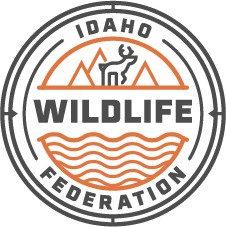
Since 1936, the Idaho Wildlife Federation (IWF) has been the state’s leading voice and influence in ensuring the people’s right to clean waters and public lands, and curtailing the decline of game and wildlife populations, setting an example and standard for other conservation groups across our nation.
IWF is Idaho’s oldest statewide conservation organization protecting sportsman interests. Founded by sporting and wildlife groups, they have led many of the state’s historic environmental victories, such as the creation of an independent Idaho Department of Fish and Game Commission, the launch of hunter education and safety programs in all seven Idaho Fish and Game Department regions, and the congressional passage of the Central Idaho Wilderness Act in 1980.
Following a period of ups and downs, IWF reinvented itself, bringing strong leadership and a coalition-first approach that led to the successful designation of the Boulder White Clouds Wilderness—which contains all nine of Idaho’s big game species, native western slope cutthroat trout, endangered chinook salmon and steelhead habitat, and some of the most iconic mountains in the west—for permanent protection in 2015. IWF has since grown to 27 affiliate organizations in its ranks with 45,000 individual supporters, members, and affiliate members. IWF has become a model to other organizations for rebuilding and re-energizing, successfully sustaining its history and regaining its strong advocacy focus while also capturing the attention of a new generation of hunters and anglers to bring them into the conservation movement.
Today, IWF is recognized as one of the most significant conservation organizations in Idaho and across the West. IWF is the voice of Idaho’s wildlife, habitat, public lands, and sporting interests. In the state legislature they serve as a daily presence to advance proactive legislation for the benefit of wildlife and access, and defeat bills that would roll back fish and wildlife protections, privatize wildlife, and seize shared public lands for sale or special interest exploitation. They believe in involving local constituents to create local solutions. By coordinating boots on the ground grassroots efforts, IWF fosters and promotes a general and continued movement for the conservation, restoration, protection, and scientific supervision of all game, fish, fowl, and other wildlife in the state.
Brian Brooks is the Executive Director of the Idaho Wildlife Federation.
National Conservation Leadership Award
Recognizing sustained conservation commitment and leadership.
2021: Jay Kehne, Conservation Northwest
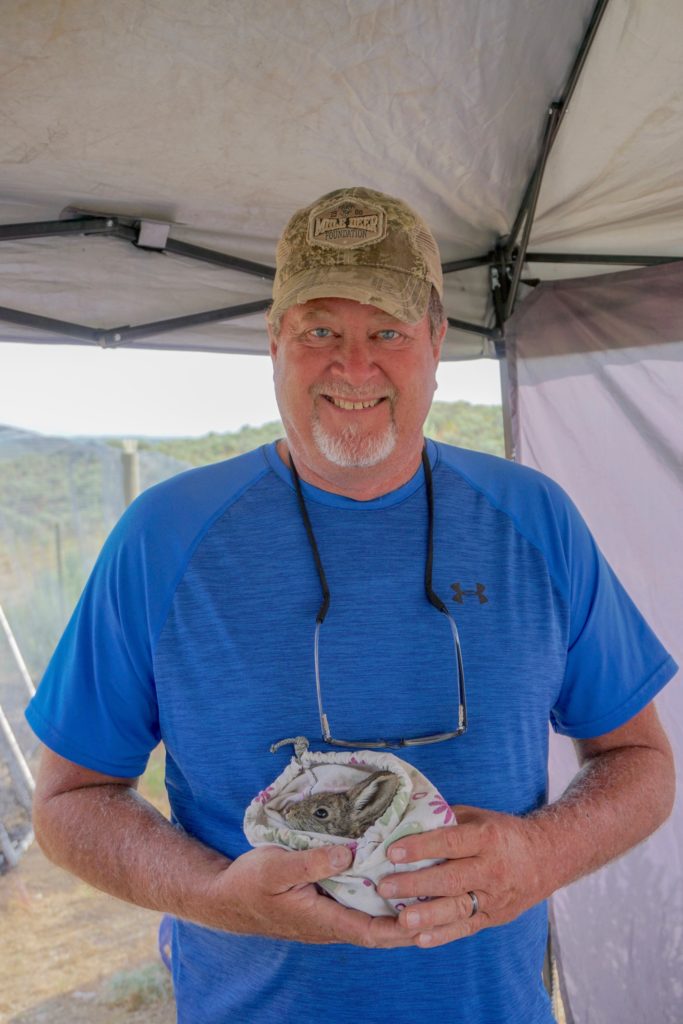
As a natural resource scientist, lifelong conservationist, and outdoor enthusiast, Jay Kehne embodies the spirit of the National Wildlife Federation. Upon retired from the Natural Resource Conservation Service a decade ago, Jay took up working for Conservation Northwest (CNW). He brought his scientific expertise and thoughtful, friendly, and unassuming manner that has allowed him to find and build upon common ground amongst hunters, farmers, ranchers, and polarizing commissioners and legislators to achieve remarkable outcomes. Working with ranchers in terrain newly occupied by gray wolves, Jay helped the ranchers learn, deploy, and model techniques that reduce the risk of conflict and enable social tolerance of wolves and coexistence between ranching and carnivores.
As part of his job, Jay manages the Working for Wildlife Coalition to protect a key habitat corridor across the Okanogan River Valley. This involves easements and acquisitions on private ranches, restoration of national forest, transplants of sharp tailed grouse, and enabling wildlife to cross a treacherous stretch of Highway 97 where over 350 mule deer are killed each year. CNW raised $250,000 as a challenge to the Legislature in 2019 to fund installation of underpasses. When the Legislature opted to not fund any new such projects, CNW spent the funds directly. Jay worked with volunteers to build a wildlife underpass, saving countless mule deer and other wildlife. With glowing local support, the Legislature has now included this project, with a price tag of $18 million, in its transportation funding plan.
Jay also initiated CNW’s new Sagelands Heritage Program to protect an inter-connected series of sage steppe habitat patches linking the Columbia Basin to the grasslands of British Columbia. Jay’s affable manner and extensive knowledge of the areas soils allowed him to successfully navigate the required delicate politics of protecting habitat amongst ranchers and farms and gain the trust and support of leading farmers. Jay’s unique ability to find and build upon common ground amongst hunters, farmers, ranchers, commissioners and legislators has made an immense difference for habitat and wildlife. His dedication to conserving wildlife and wild places serves as an inspiration to all. He also served two terms on Washington Fish and Wildlife Commission.
- Video: First phase of Safe Passage 97 project completed with private funding
- Video: This Land Is Part of Us: Washington’s shrub-steppe ecosystem
2020: Claude Jenkins, Alabama Wildlife Federation
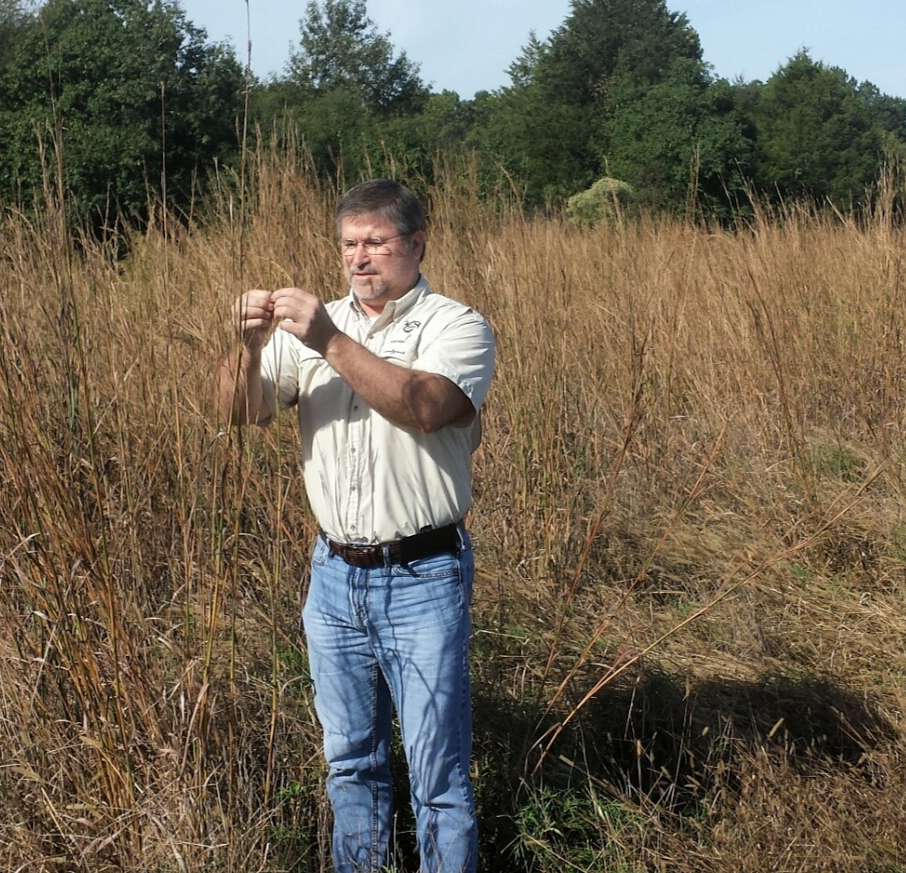
Senior Biologist Claude Jenkins created and has led the Alabama Wildlife Federation’s Land Stewardship Assistance Program since its inception in 1999. During this 20-year history with Claude at the helm, over 1,000 private landowners have benefited from the program’s technical assistance, resulting in the implementation of wildlife habitat management recommendations on more than half-a-million acres of private land in Alabama. Under Claude’s leadership, the program secured funding from the National Fish and Wildlife Foundation for 12 consecutive years to support Longleaf Restoration. To date, Claude has helped to establish more that 20,000 acres of longleaf pine on private lands in Alabama. In 2010, Claude undertook a related initiative focused on the establishment and management of native warm season grass, and, in 2019, funding was secured for 10 consecutive years to support this work. The Land Stewardship Assistance Program is a model already being used by other state federations.
Claude is the author of two important publications, A Guide to Managing Northern Bobwhites and other Birds Associated with Early Successional Habitats, and Plants and Management of the Black Belt Prairie: A Guide for Landowners. As a result of his work and commitment to excellence, Claude collaborated with entities in Alabama and Mississippi to form the Black Belt Prairie Restoration Initiative which sought to restore, enhance and protect native prairie habitat within the Black Belt Prairie Region of Mississippi and Alabama. Claude was selected by his peers to serve as President of the initiative.
Claude has also served as President of the Alabama Chapter of the Wildlife Society. He is a mentor to the young wildlife professionals that work for him and alongside him. Recognized as “the” expert in on-the-ground restoration of native prairie in Alabama, Claude has been on the front lines where conservation of wildlife habitat actually takes place—in the field and on the ground. Claude and his team continue to empower landowners to make these critical gains for wildlife and wildlife habitat. Claude’s ongoing conviction and commitment to conservation is an inspiration to all.
National Conservation Young Leader Award
Recognizing the special conservation achievements of young leadership.
2021: Charmayne Planter, John Deitsch, Earyn McGee
Charmayne Planter
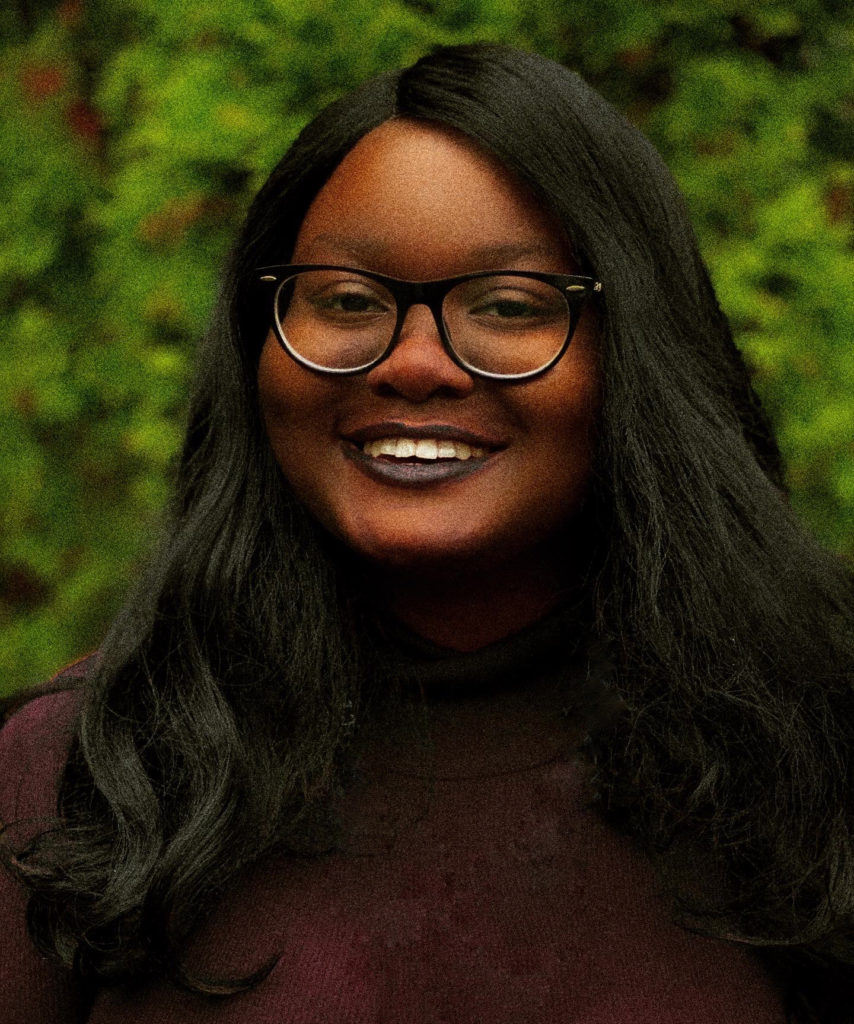
Charmayne Planter started her environmental career leading the National Wildlife Federation’s Youth Environmental Education and Youth Leadership Program: Earth Tomorrow from 2017 to 2020. In these three years, she demonstrated a strong commitment towards creating a solid foundation of passionate young adults ready to reclaim their voice and make a positive impact in Clayton County, Georgia. Each year, she worked harder than the year before, spreading awareness and motivating youth in her community to become advocates for their environment. Charmayne has been heavily involved in bringing awareness of clean air and water, safe communities, and equitable access to nature to her peers and organizing them to act. She has managed community action projects that included river clean-ups, plantings, park maintenance, climate rallies, and community awareness campaigns. She has also participated in the Earth Tomorrow Summer Institute Campout at the Georgia Wildlife Federation’s Alcovy Conservation Center. Charmayne cares deeply about protecting natural resources and habitats that benefit both people and wildlife.
In her leadership, Charmayne’s motivations were to engage the community of students she represented to incorporate political activism and community development service projects in their daily work. Addressing social conditions like environmental racism allowed her Earth Tomorrow chapter to observe how they could play a critical role in advocating for fair treatment in their local community. Charmayne’s Earth Tomorrow club efforts were even recognized on social media by key activist Stacey Abrams during her race for Governor in Georgia. Charmayne viewed this as a sign to continue her work, inspiring a future generation of students to be empowered by their environment. Charmayne acknowledged the balance of conservation and political activism. She integrated these ideals by conducting letter-writing campaigns for legislative officials to address environmental concerns. She also organized a walk-out at her school to participate in global youth-led activism in the Global Climate Strike, started by Greta Thunberg in 2019.
Charmayne’s dedication and engagement with Earth Tomorrow prompted her club to be recipients of the Earth Tomorrow Club of the Year Award. This award symbolizes her leadership and commitment to inspire her peers to act on environmental and conservation issues, especially in communities of color. While completing her final year of high school, she led her school’s Earth Tomorrow club activities while empowering the next generation of club leaders to continue her good work. Charmayne made meaningful contributions to the Atlanta Earth Tomorrow Program, including creating an inventory of environmental justice resources to help the program build an Environmental Justice course for students. Charmayne also helped create the inaugural Earth Tomorrow Virtual Summer Series when the Covid-19 pandemic prevented in-person summer camps.
Now an alumnus of the Atlanta Earth Tomorrow Program, Charmayne continues to be an inspiration to so many of her peers and uses her strong voice to advocate for conservation and environmental justice. Charmayne currently attends Sarah Lawrence College, where she is studying International Development and Environmental Studies. Her ambitions are to embrace a career in environmental law and political advocacy.
John Deitsch
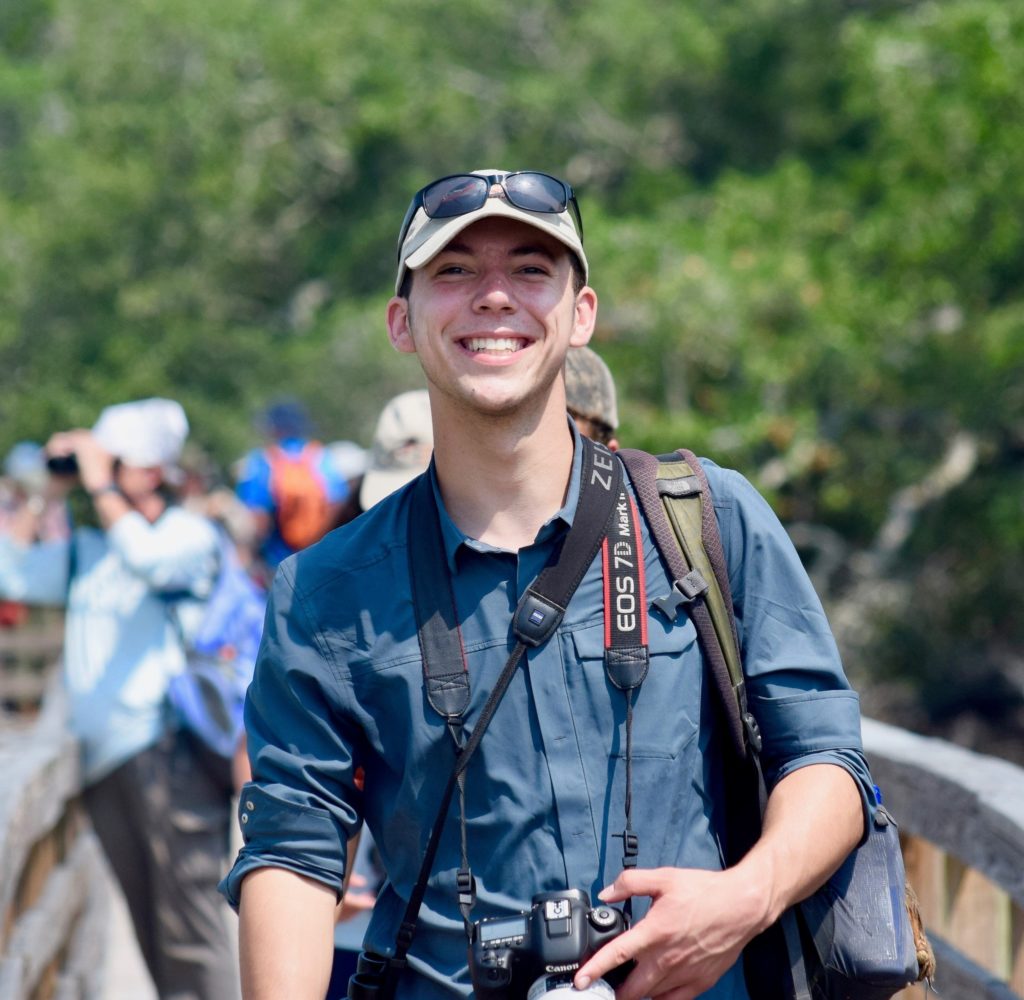
John began chasing birds and dragonflies when he was 8 years old. At age eleven he joined the Southern Wings Bird Club and is still a current member. Since 12 years old, John has been a volunteer for the Georgia Wildlife Federation (GWF) at Mill Creek Nature Center in Buford, Georgia. The Center’s 88 acres of streams, wetlands, and woodlands have been a constant presence in John’s life. Here John has participated in many environmental and wildlife projects such as invasive plant removal, avian censusing, bird banding, bird and insect identification, and cleaning duck nesting boxes. As a high school student, John entered Georgia birding competitions where he won first place several times and attended various birding camps across the country. John maintains the official bird, dragonfly, and butterfly checklists for Mill Creek Nature Center which has become the number 5 birding hotspot in Gwinnett County, Georgia. John enjoys sharing his excellent wildlife photographs and has had articles published in various periodicals.
Now a junior at Cornell University majoring in Entomology and Biological Sciences, John has been involved in a variety of projects involving ornithology, entomology, and conservation. He has done field work in the snowy woodlands of a New York winter and has traveled to the rainforests of Costa Rica and Brazil with the Cornell Lab of Ornithology. One of John’s current projects is the curation and cataloging of dragonfly and damselfly specimens in the Cornell University Insect Collection. He will spend this summer doing fieldwork and research at Hubbard Brook Experimental Forest in the White Mountains of New Hampshire. John also continues to serve as a Naturalist and Wildlife Volunteer for the Georgia Wildlife Federation at Mill Creek Nature Center. Always willing and ready to share his knowledge, John is making a real difference and leaving a lasting impact on others.
Earyn McGee

Earyn McGee is a PhD candidate in the School of Natural Resources and the Environment at the University of Arizona. Her research focuses on the impacts of climate change on lizards in the Southwestern United States. She is passionate about field research, herpetology, and social justice. She is also interested in the barriers preventing Black women from entering natural resources careers. She specifically studies and applies social media to bring more African American women into careers involving water and land management.
Growing up in Inglewood, California, Earyn showed an early interest in science and animals. She completed an undergraduate degree in conservation biology at Howard University, where she was an Environmental Biology Scholar. Her summer undergraduate research involved studying Yarrow’s spiny lizard in the Cave Creek Canyon of the Chiricahua Mountains. In 2018, McGee completed a Master’s degree in the School of Natural Resources and the Environment at the University of Arizona, with a focus in wildlife conservation and management.
In response to the racism faced by Black birdwatcher Christian Cooper in the Central Park birdwatching incident, Earyn co-organized Black Birders Week to celebrate Black birders. This effort led to the founding of Black AF in STEM, a collective of young Black scientists studying and helping others become engaged in the outdoors and nature by showing interest in the life sciences.
In February 2021, Earyn served as an expert panelist in National Wildlife Federation’s Creating Safe Spaces Round Table, the last in a 3-part series featuring Black leaders to discuss the challenges and opportunities as it pertains to advancing safety and access to nature for Black families and outdoor enthusiasts.
Earyn is the creator of the popular social media game, #FindThatLizard. Every week she posts a photo of a lizard camouflaged in its natural environment and players have to find it. As a result of this effort to teach people interesting lizard facts and to give them a greater appreciation for lizards, Earyn was chosen by Popular Mechanics in February 2020 as one of ten influential women in science communication and for science content. She has also been recognized for her efforts among Forbes’ top 30 Under 30 scientists in 2021. Among her many other awards and recognitions, Earyn has served her community as a Doris Duke Conservation Scholars Program (DDCSP) graduate mentor. The DDCSP is aimed at increasing the diversity of scientists engaging in conservation work.
After she graduates, Earyn aspires to host a natural history TV show to teach people about animals and showcase Black, Indigenous, and other People of Color doing important conservation work.
2020:Manoj Sarathy
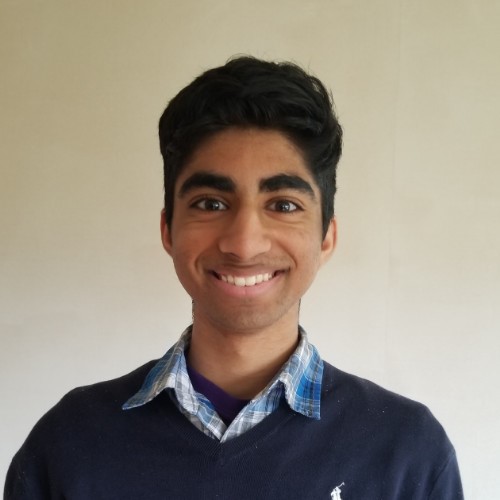
A volunteer at Conservation Northwest (CNW), Manoj Sarathy dedicated more than four years to learning about conservation issues in wildlife research. Collaborating with leaders in conservation biology and information technology, he used artificial intelligence to develop machine learning models to support researchers monitoring wildlife through remote cameras. After teaching himself how to write code, Manoj developed a program that separates false triggers and human detections from wildlife photos, reducing the amount of time that it takes researchers to analyze thousands of data points.
As a high school student, Manoj started a conservation club to spread awareness of conservation issues and connect students to efforts such as native planting events and wildlife camera monitoring. He also raised and donated funds to benefit local non-profits focused on wildlife. As a supporting member of CNW and as a team lead, Manoj engaged youth in the Citizen Wildlife Monitoring Project, teaching them how to monitor for wildlife using remote camera traps. He sought out opportunities to support local habitat restoration projects and CNW’s annual auction. Manoj also presented his wildlife monitoring initiative at multiple functions, engaging a broad audience in this unique angle on the convergence of wildlife conservation and information technology.
Currently in college, Manoj has recently joined the Formula motorsports racing club and is on the Driverless and Sponsorship teams there, using his experience with image recognition machine learning to develop a full-sized driverless racing car that can automatically detect cone positions in 2D and then translate that to a 3D view of where all of the cones are at any given time to stay within the track. Manoj hopes to gain further experience working with this technology before returning to the environmental community to hopefully develop further technology to help organizations with their increasingly important work.
Manoj’s commitment to conservation and the initiative he has taken to develop innovative ways to study wildlife is incredibly impressive. The dedication he has shown to engaging his peers in conservation efforts, combined with his enthusiasm and passion for the natural world, inspires those around him and makes him an exemplary recipient of this award.
Charlie Shaw Conservation Partnership Award
Recognizing individuals who have demonstrated a true appreciation for the value and potential of the NWF-affiliate partnership. This award is made to a volunteer or staff member from an affiliate organization and an NWF staff member.
2021: Brad Powell and Ben Kota
Brad Powell
President
Arizona Wildlife Federation
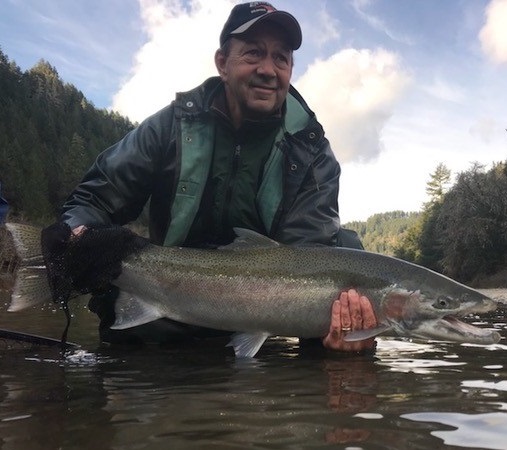
Brad Powell began his career in conservation over 50 years ago with the US Forest Service. He completed a career of over 35 years with the US Forest Service and then over a decade with Trout Unlimited in conservation advocacy focused on public lands. For the last 15 years with the Arizona Wildlife Federation (AZWF), Brad has been a strong advocate for the NWF-affiliate partnership. While deftly growing AZWF into a strong regional conservation voice in the Southwest, Brad also has been a national leader of NWF’s One Federation. Brad served on NWF’s Strategic Planning Committee, along with five other affiliate leaders, and played a major role in designing the Plan and incorporating the One Federation concept. Brad and his colleagues went on to write the “We Commit” statement, affirming NWF and its affiliates’ pledge to implement the Plan. The statement was unanimously adopted by all affiliates. As a member of the One Federation Advisory Board, Brad has guided the implementation of One Federation, incorporating strategies such as a redesign of the affiliate caucus/workgroup structure that enables affiliates and staff to work together effectively around conservation priorities such as Recovering America’s Wildlife Act, the Great American Outdoors Act, and climate change.
As NWF looks to the future, Brad continues to be instrumental in designing the next generation of One Federation—One Federation 2.0. Brad is a strong team member making recommendations for advancing affiliate power and effectiveness, drawing on his many successes in transforming AZWF through deep strategic planning, vision, and experience. With his collaborative approach and strong board-building skills, Brad has significantly expanded the capacity of AZWF, substantially increasing both its staffing and its annual budget.
Brad is often sought out for his advice from all corners of the Federation and he responds with kindness, candor, skill and expertise. His tireless pursuit of conservation victories at the local, regional, and national scale goes above and beyond what could be expected. Time and again, Brad rises to meet myriad threats to conservation values, habitat and wildlife, and his intuitive grasp of conservation policy brings tremendous value to the entire Federation.
Ben Kota
General Counsel
National Wildlife Federation
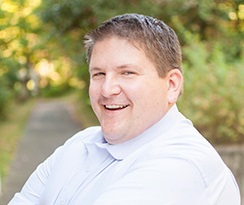
Benjamin “Ben” Kota, General Counsel and Corporate Secretary of the National Wildlife Federation, embodies why NWF’s federated structure makes us the country’s strongest force for wildlife. Through his work Ben both leads nationally, and helps build the ability of affiliates to work in their state and together as One Federation. Embracing the ethos of a servant leader, Ben consistently prioritizes the needs of NWF affiliates, and demonstrates the value and power of the NWF-affiliate partnership among his colleagues and across the organization.
A registered patent attorney, Ben joined the National Wildlife Federation in 2013 and has over 15 years of legal expertise in nonprofit advocacy and fundraising, corporate governance, affinity marketing, employment law, real estate, litigation, and intellectual property rights. Actively engaged in all aspects of the organization, one of Ben’s top priorities is to ensure advocacy and fundraising strategies and tactics comply with various state and federal rules and regulations. Prior to joining the National Wildlife Federation, Ben helped foreign and domestic companies protect and enforce valuable intellectual property rights. He grew up in rural Gowanda, New York, and enjoys returning to his hometown to explore the natural beauty of Zoar Valley. Kota holds a B.S. in biology from St. Bonaventure University and a J.D. from the UIC John Marshall Law School with a certificate in intellectual property.
Ben goes above and beyond in order to help affiliates sort through complex legal issues, and has readily stepped in to provide guidance with his trademark humor and openness. Ben’s willingness to work with the breadth of NWF’s affiliate family makes us all stronger and carries forward Charlie Shaw’s legacy of many different conservationists all working together toward the goal of protecting wildlife and habitat.
2020: George Meyer and Frank Szollosi
George Meyer
Executive Director
Wisconsin Wildlife Federation
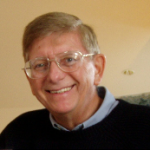
George Meyer is THE leader of the conservation movement within Wisconsin. He is a convener of individuals and organizations within the state, region, and nationally. In true federation form, he seeks to gather diverse voices to accomplish conservation victories.
Since he began his tenure in 2003 as the organization’s Executive Director, Wisconsin Wildlife Federation (WWF) has grown from 79 affiliate conservation clubs to over 200 such organizations and has become a highly recognized and respected advocate for conservation policy. Specific campaigns championed by WWF under George’s leadership include the Farm Bill, Asian Carp removal, Recovering America’s Wildlife Act, protecting the Endangered Species Act and many others. George has led WWF steadfastly in advocating for protection of the Great Lakes, the Knowles-Nelson Stewardship Fund, strong financial support for the Department of Natural Resources, nonpolitical professional management of natural resources, protection of fish and wildlife and their habitat, access to public lands and water, reduction of water pollution in Wisconsin and the protection of the state’s rich outdoor heritage.
Over his career, George has been honored scores of times through awards and citations to recognize his dedication to conservation. In addition to guiding WWF’s conservation policy advocacy, George has also led the expansion of the Federation’s education programs including its strong partnership with the Wisconsin Green School Network. Furthermore, under George’s tenure, the Wisconsin Conservation Leadership Corps (CLC) was created to develop conservation leaders by providing expert training from experienced natural resource professionals to high school seniors and college students to help them acquire leadership skills and techniques to analyze, develop, and communicate conservation policy.
A pragmatic leader, George is steadfast and strategic in his efforts to continually elevate both the Wisconsin Wildlife Federation and the National Wildlife Federation in the halls of Congress, his state house and with constituents. George is constantly looking to strengthen WWF’s voice and the Federation’s through collaboration across his peer groups and fellow leaders within NWF.
Frank Szollosi
Great Lakes Climate Policy & Field Director
National Wildlife Federation
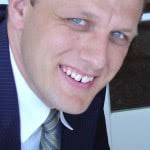
Frank Szollosi served for over a decade on climate and water policy campaigns for both the National Wildlife Federation’s Great Lakes Regional Center and Washington, D.C.-based National Advocacy Center. Frank is being honored for his passion and commitment to strengthening the Federation’s state affiliate network.
Frank is a strong believer in working together in partnerships to advance today’s biggest conservation challenges. He is truly passionate about strengthening the National Wildlife Federation and its affiliate network. He understands that we are stronger together by building lasting relationships with our affiliates and partners. Highlights of Frank’s work in the Great Lakes include dropping his kayak into Michigan’s Kalamazoo River to document wildlife and habitat impacts in the immediate aftermath of the 2010 oil pipeline disaster, leading the National Wildlife Federation’s response to the Toledo Water Crisis in 2014 and successfully advocating for federal Clean Water Act accountability for nutrient reduction, and hiring and managing a diverse array of field organizers in states across the Midwest to push for stronger climate action, defense of public lands and critical state and federal conservation legislation.
A relentless advocate for including affiliates in all aspects of the Federation’s work, Frank has been deeply committed to National Wildlife Federation’s collaborative efforts to address equity and justice. In June 2020, Frank took on a new leadership role as Executive Director for the Montana Wildlife Federation where he continues to be a guiding influence as a leading member of the NWF community.
National Conservation Affiliate Volunteer of the Year Award
Recognizes an outstanding National Wildlife Federation affiliate volunteer who gives their time, talent, and service to support the conservation efforts of the Federation.
2021: Laura Mendenhall, Kansas Wildlife Federation
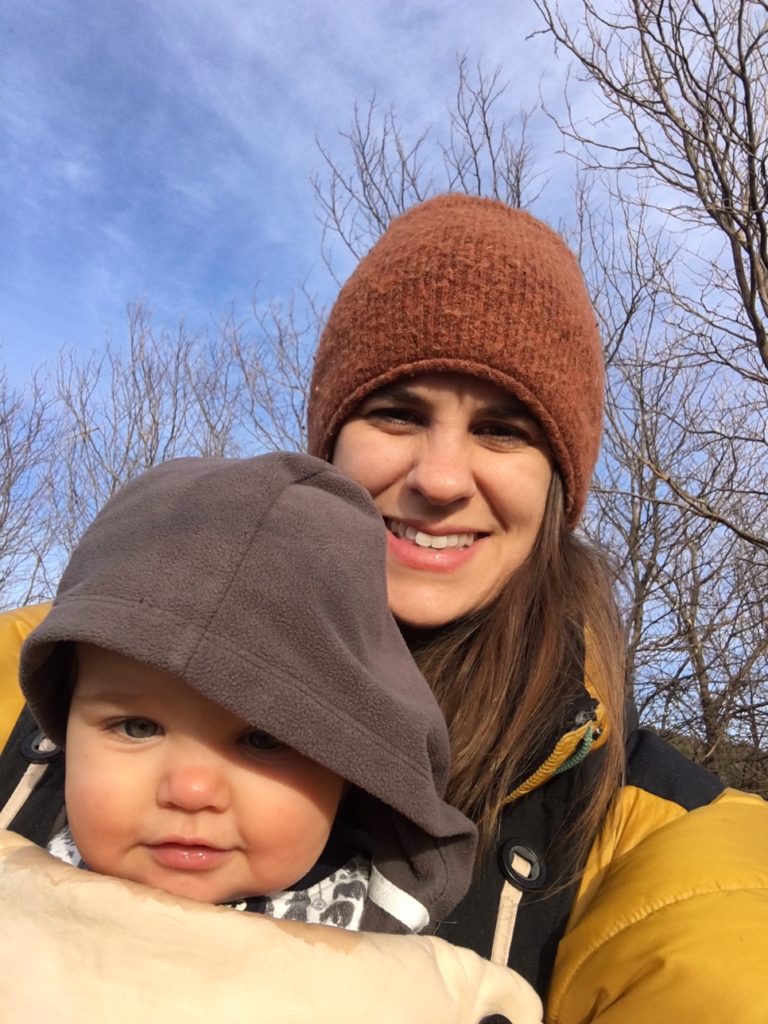
Laura Mendenhall grew up in Olathe, Kansas where she cultivated a strong outdoor ethic after joining the Boy Scouts of America Venturing Co-ed Scout program at age 14. Following undergraduate studies in conservation biology and Spanish at Kansas State University and graduate studies in spatial analysis for conservation at Duke University, Laura started her now 9-year career as a biologist with the U.S. Fish and Wildlife Service, first at the California Condor Recovery Program in Ventura, California, and now in Kansas.
Laura joined the Kansas Wildlife Federation (KWF) volunteer board in 2017. She became KWF President in 2018. In 2019, through Laura’s efforts to expand the programmatic work of the Kansas Wildlife Federation, a partnership was formed with the Kansas Department of Wildlife, Parks and Tourism and the Kansas Hispanic and Latino American Affairs Commission to translate into Spanish the state’s hunting and fishing regulations and to manage the delivery of the regulations, making them available to the over 80,000 households in Kansas that speak Spanish as a first language. The group’s next goal is to translate Kansas fishing and boating regulations into Spanish. Laura has also been extremely supportive of the Kansas Department of Wildlife, Parks and Tourism (KDWPT)’s Outdoors for All program to establish Kansas as a safe place for the Latinx community to safely enjoy the outdoors and she continues to partner with KDWPT to attain success with this initiative.
In 2020, Laura and KWF partnered with KDWPT to launch the bimonthly “Flatlander” podcast with the goal of engaging hunters, anglers, hikers, birders, and other outdoor recreationists on the most pertinent wildlife conservation policy issues and Kansas ecology. Listeners will come away with a common language and knowledge base to empower in-person dialogue with friends and family and further the level of civic engagement between our Kansas outdoorsmen and women and their political representatives.
To facilitate fellowship and learning among women who hunt and fish, Laura created the Kansas Women Hunters and Anglers Facebook group, which has steadily grown to over 500 members. The Facebook page connects women across the state to meet fellow outdoorswomen, learn new skills, and exchange stories and ideas. As a result, women with no previous experience in the outdoors have been inspired to try their hand at hunting and/or fishing for the first time.
Through Laura’s initiative, a National Wildlife Federation Certified Wildlife Habitat Program has been established in Kansas. The program is a step toward replenishing resources for wildlife and it also provides additional funding to support KWF’s important conservation work.
Laura has also served on the National Wildlife Federation Transforming Wildlife Conservation Caucus to help guide the implementation of this strategic effort. Representing KWF, Laura has worked diligently on behalf of Kansas Wildlife Federation to create meaningful partnerships with other conservation organizations in furtherance of KWF’s mission to promote hunting and fishing opportunities and associated recreation for the benefit of all hunters and anglers.
2020: Pete Pedersen, Environmental League of Massachusetts
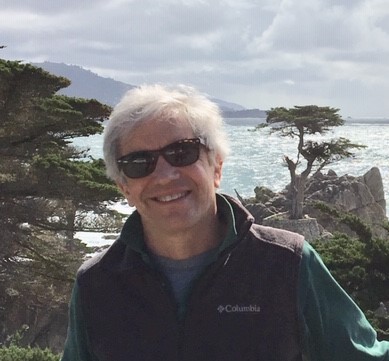
Conservation champion and Massachusetts resident Pete Pedersen is being recognized for his commitment to combating climate change and protecting public lands, water and public health as board chair for the Environmental League of Massachusetts (ELM). Pete joined ELM about a decade ago and works hands on with every committee and attends almost all of the League’s events, lending ample energy, expertise, credibility and support. He has also served on the board of directors for the Environmental League of Massachusetts Action Fund, working closely with the National Wildlife Federation’s Anglers for Offshore Wind Power project and the League’s partnerships with the Federation.
Pete is a longtime brownfield and renewable energy developer, focusing in more recent years on bringing solar power to brownfields. He is also co-founder of Renova Partners LLC, a brownfields redeveloper, and Brightfields Development LLC, a solar energy company. He has taught an undergraduate sustainable finance course at Babson College for the last several years. Pete has also served on the Chautauqua Institution board of trustees in Chautauqua, New York, and speaks on solar development, redevelopment and environmental issues. As an attorney and businessman, he has worked to ensure that the best possible outcomes for the environment are achieved.
Pete’s support for the Federation and the environment is truly inspiring. He works tirelessly every day to ensure that renewable energy development and investment is prioritized as a critical part of a clean energy future. The National Wildlife Federation is proud to honor his commitment to environmental education, advocacy and stewardship and to building strong, powerful partnerships for the betterment of our planet.
